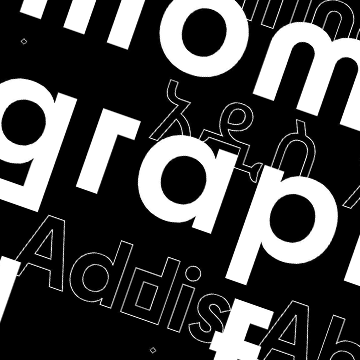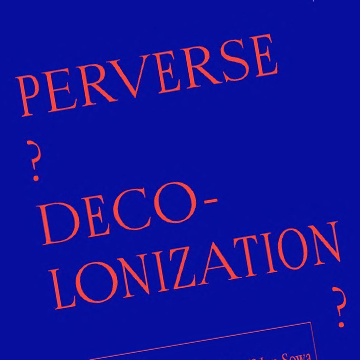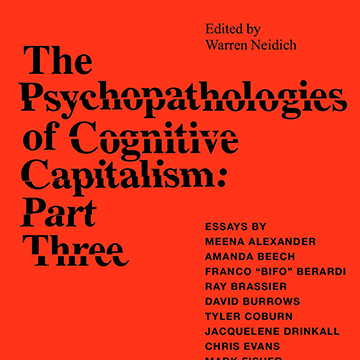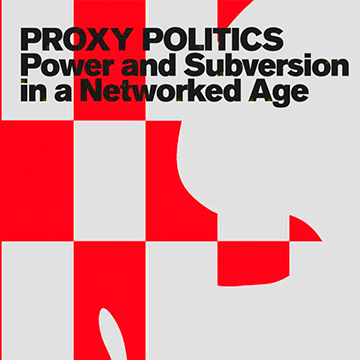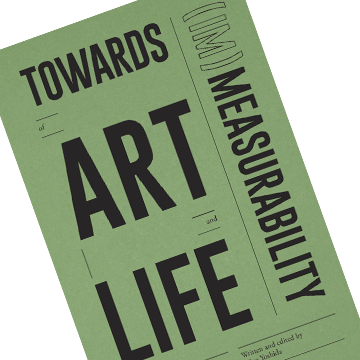Momentography of a failure [Addis Ababa] brings essays, timelines, film, photography, and a series of conversations together to deal with Ethiopia’s controversial urbanisation and the transformative space of the city. It explores the gradual transition of rural-urban space, inner-city migration, emerging and disappearing spaces, and commoning in public space.
Tag: technology
PERVERSE DECOLONIZATION?
New nationalisms, toxic patriotisms and systems of exclusion have been on the rise for the last decade, reinforced by technology and rooted in colonialism, slavery and class oppression. Our time offers a unique twist on these age-old structures: rhetorics of decolonization are now weaponized by autocratic regimes, just as they are normalized in the phantasmagoria of cultural practices.
PERVERSE DECOLONIZATION?
Neue Nationalismen, toxische Patriotismen und Ausgrenzungssysteme sind auf dem Vormarsch, verstärkt durch Technologien und verwurzelt in Kolonialismus, Sklaverei und Klassismus. Unsere Gegenwart stellt eine einzigartige Verdrehung dieser uralten Strukturen dar. Die Rhetorik der Dekolonisierung wird heute von autokratischen Regimen missbraucht und durch immer gespenstischere kulturelle Praktiken normalisiert.
The Psychopathologies of Cognitive Capitalism. Part Three
This third volume of The Psychopathologies of Cognitive Capitalism emerges from deliberations that took place during two different symposia. The first was a collaboration between Warren Neidich and Mark Fisher at the Department of Visual Culture at Goldsmiths College, titled The Psychopathologies of Cognitive Capitalism Part Three: The Cognitive Turn, and the second was an event organized in conjunction with the Goethe-Institut Los Angeles, Noise and the Possibility of a Future.
Proxy Politics
This publication looks at proxy-politics on both a micro and a macro level, exploring proxies as objects, as well as networks as objects. What is the relation between the molecular and the planetary? How to fathom the computational regime?
Yet, whilst being a manifestation of the networked age, thinking like a proxy offers loopholes and strategies for survival.
Being Together Precedes Being
Being Together Precedes Being offers a text book for the project “The Kids Want Communism,” which was initiated towards the 99th anniversary of the Soviet Revolution of October 1917 as a series of exhibitions, symposiums and conferences, screening programs, publications and a summer camp. In this textbook, communism does not merely describe an “us versus them” relation, but also offers that we are becoming the future. This trajectory of communism runs parallel to us at every single moment and its guiding principle is that being together precedes being.
Towards (Im)Measurability of Art and Life
Towards (Im)Measurability of Art and Life gathers together various stories, practices, and essays about measurement that embrace paradox, contradiction, and humour. The book creates and introduces incidents of ideas, conceptual methods, acts, and processes of measurement that dwell in a conceptual transition between science (technology) and everyday life. When measurement is viewed as a practice, it is important to recall that data processing, especially visualisation, actually necessitates many aesthetic decisions.
Frequency-Modulated Scenario
What difference does it make if a newspaper reports on a worker protest as if it were a theatre piece? Why does an argument in the neighbors’ apartment sound like a radio play? When was the term Lebensraum decolonized? How can Little Red Riding Hood get hold of the copyright for her own character? Who dresses up as whom in order to belong to what group? What happens when not much is happening, but lots of airtime has been scheduled for news broadcasts?
At a radio station called The Listener’s Voice, freedom of speech is supposed to be guaranteed by a computerized moderator taking listeners’ calls. Yet, the moderator was not only programmed for an unplanned architecture of discourse that sprawls into environments of potential violence, ambiguous sexuality, and rowdy beauty, but also to make identifying data anonymous. Double-sided, invisible, and acoustic masks are at work. Cyber-radio comes into conflict with human memory.
